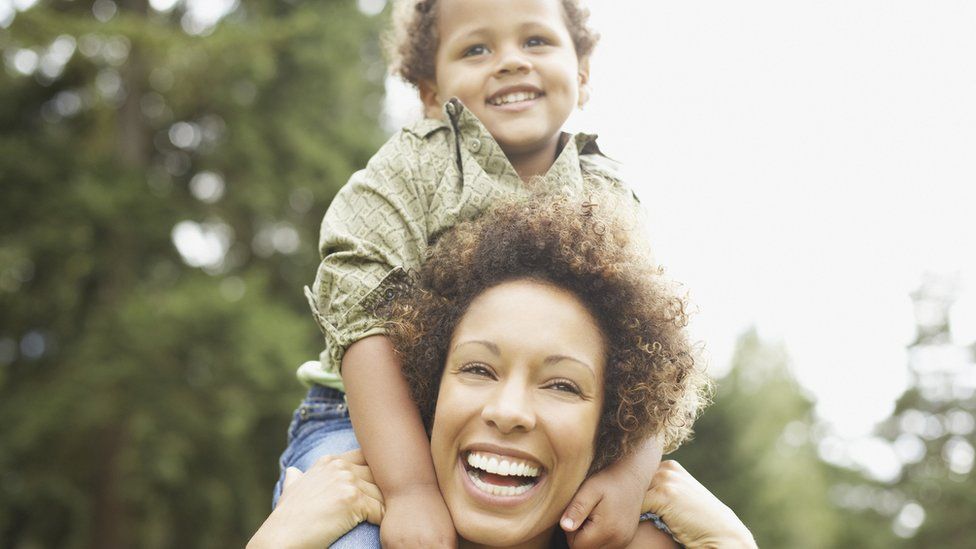Women have 1.9 children on average, a record low
- Published

Women in England and Wales are having 1.9 children on average, fewer than their mothers who had 2.2 offspring, according to the Office for National Statistics.
That's a small decrease but the lowest level on record and continues the downward trend of the past few years.
The decline is in part due to a growing number of women not having children, with one-fifth now childless.
There has also been a fall in the number of teenage pregnancies.
About 6% of women have a baby before their 20th birthday, again continuing a long-term downward trend.
But "it's not just childlessness," said Emily Knipe of the Office for National Statistics. More and more women are having fewer babies.
The data showed about one in 10 mothers today having four or more children, compared with one in eight of their mothers' generation.
'Better control'
Women are also having babies later. By their 30th birthdays, women today are likely to have had one child. Their mothers were likely to have had 1.8.
The ONS suggested this is because more women are going into higher education and are also delaying finding a partner.
Ms Knipe said: "It's not just a biological factor of people leaving it too late. There is a growing body of evidence that suggests people are choosing not to have children."
The data showed that the number of women having children in their teenage years, after peaking in the mid-20th Century, now matches figures for women born in the 1920s.
Imogen Stephens of Marie Stopes UK said it "shows that young people are taking better control of their fertility".
"It is a big financial commitment to start a family and it is completely understandable that more women are choosing to complete their education, develop their careers and get on the housing ladder before having children.
"What is vital is that we support women's choices to have children at the age that is right for them."
- Published23 November 2017
- Published22 March 2017